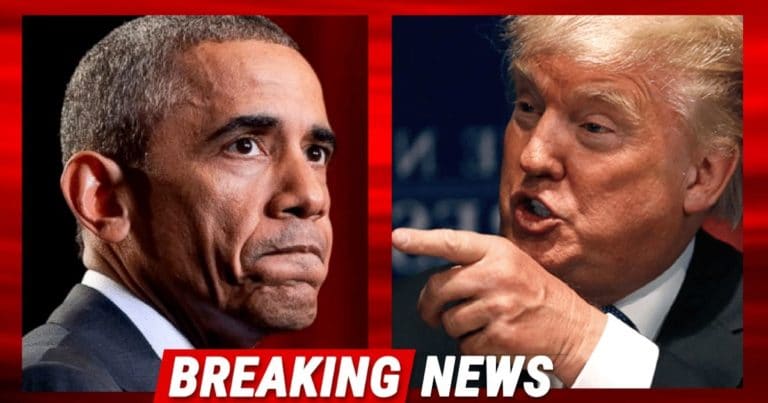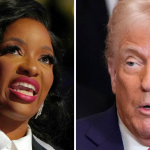
In the high-stakes world of nuclear diplomacy, second chances are as rare as sincere promises from Tehran. Like a chess player who’s been burned by the same gambit before, America approaches the board with institutional memory intact, pieces positioned differently this time. The failed Obama-era nuclear agreement with Iran stands as a monument to diplomatic naivety – a deal that delivered pallets of cash to the world’s leading state sponsor of terrorism while merely pausing, not eliminating, their nuclear ambitions.
For over a decade, American policy toward Iran has resembled a pendulum swinging between appeasement and confrontation. When President Obama orchestrated the Joint Comprehensive Plan of Action (JCPOA) in 2015, he claimed it would prevent Iran from obtaining nuclear weapons. Instead, it provided economic relief while allowing Iran to continue perfecting their uranium enrichment technology behind the scenes. And let’s be honest – President Biden’s subsequent attempts to resurrect the deal only emboldened the regime further, showing exactly what happens when America leads from behind.
The Iran of 2025 is not the Iran of 2015. Today’s Islamic Republic has perfected advanced centrifuges capable of enriching uranium from zero to weapons-grade in mere weeks, not months or years. They’ve accumulated enough near-weapons-grade enriched uranium to produce five nuclear weapons if further enriched. And perhaps most alarmingly, they now possess ballistic missiles capable of delivering these weapons to targets throughout the Middle East, including Israel and U.S. military installations. Can anyone seriously argue the Obama-Biden approach made us safer?
Against this sobering backdrop comes word that the U.S. and Iran have agreed to meet for a third round of nuclear talks later this week in Muscat, Oman. This announcement follows four hours of negotiations in Rome on Saturday between American and Iranian delegations, with Omani officials serving as intermediaries. Details remain scarce, but both sides expressed cautious optimism about the direction of the discussions.
The format of these talks represents a compromise between Trump’s initial insistence on direct negotiations and Iran’s refusal of face-to-face meetings. While Middle East envoy Steve Witkoff and Iranian Foreign Minister Abbas Araghchi did reportedly speak directly at some point, much of the communication was facilitated through Omani diplomats, with the two sides in separate rooms.
From Fox News:
“Today, in Rome, over four hours in our second round of talks, we made very good progress in our direct and indirect discussions,” the [senior administration] official said Saturday. “We agreed to meet again next week and are grateful to our Omani partners for facilitating these talks and to our Italian partners for hosting us today.”
Iran, for its part, offered a more measured assessment. Araghchi wrote on social media that a “relatively positive atmosphere in Rome has enabled progress on principles and objectives of a possible deal.” However, he was quick to add that the original JCPOA is “no longer good enough for us,” characterizing what remains of that agreement as merely “lessons learned.”
Security experts view these negotiations with significant concern. Retired Gen. Jack Keane, a Fox News senior strategic analyst, highlighted the fundamental challenge: “Iran in 2025 is not the Iran in 2015 when that first nuclear deal was made.” The difference, he explained, is Iran’s advanced centrifuge capability and ballistic missile delivery systems – neither of which existed at the previous deal’s signing.
Any effective agreement must not only eliminate Iran’s stockpile of highly enriched uranium but also dismantle their manufacturing capability for advanced centrifuges. This represents a far more comprehensive undertaking than the original JCPOA, which merely limited enrichment levels and stockpiles temporarily.
Iran expert Behnam Ben Taleblu warned against repeating past mistakes, calling it “the height of strategic malpractice and a political own goal to allow the Islamic Republic to force America under the Trump administration into a deal that only slightly modified the accord that Trump rightly criticized and walked away from in 2018.”
I’ve watched this Iranian nuclear saga play out for years, and it’s refreshing to finally see an administration that understands the fundamentals of negotiation. The Trump approach clearly differs from his predecessors’ in every meaningful way. While maintaining maximum economic pressure through sanctions, he’s signaled willingness to explore diplomatic solutions without rushing into a flawed agreement. “I’m not in a rush to do it because I think that Iran has a chance to have a great country and to live happily without death,” Trump stated recently when asked about potential military strikes against Iranian nuclear facilities.
This balanced approach represents the essence of peace through strength – a willingness to negotiate while maintaining credible alternatives. Unlike Obama, who seemed desperate for any deal regardless of terms (remember how badly they wanted that legacy-defining photo op?), Trump approaches these talks from a position of leverage and strength. Isn’t it amazing what happens when America negotiates from a position of power rather than appeasement?
The Iranians understand this difference better than anyone. They’ve seen what happened when they tested American resolve in Trump’s first term. They know his willingness to authorize decisive military action, as demonstrated against terrorist leaders like Qasem Soleimani. This time, the chess pieces are arranged differently – with America holding the stronger position.
The coming days will reveal whether this third round of talks produces substantive progress or merely buys Iran more time. But unlike previous administrations that sacrificed substance for the appearance of diplomatic achievement, Trump seems determined to secure America’s interests first – no second chances given without genuine concessions received. After years of watching weak leadership embolden our enemies, it’s about time we had a president who puts American security above international approval ratings.


